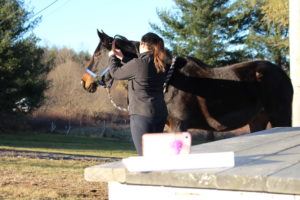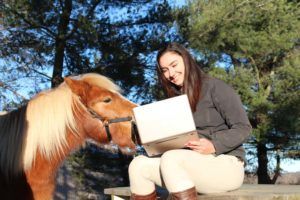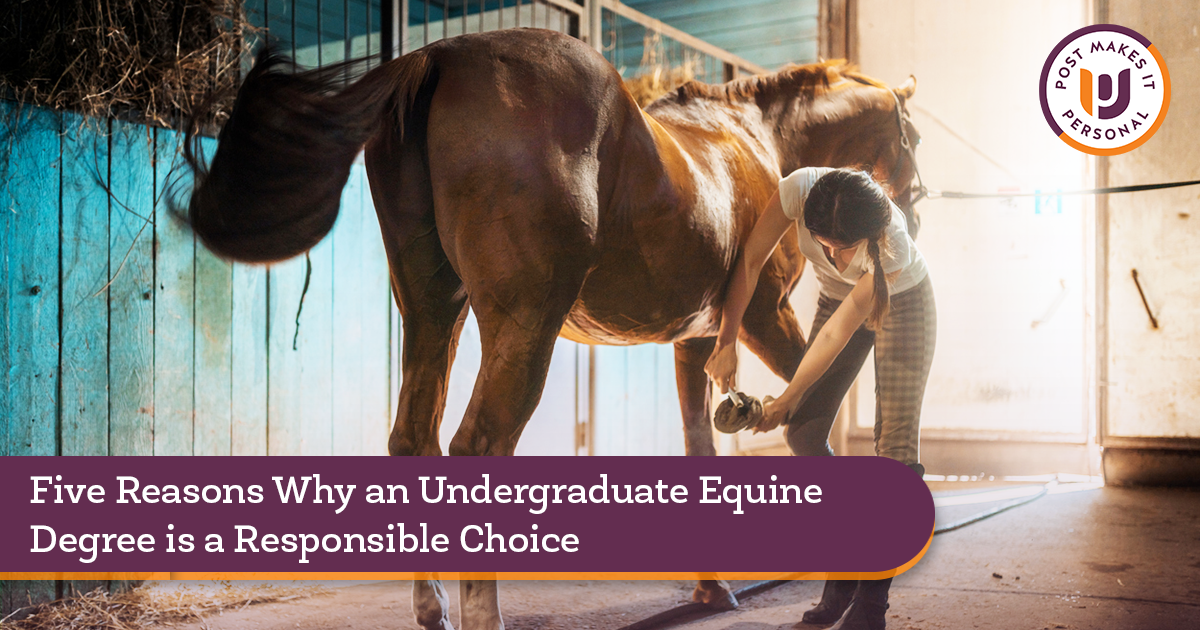I frequently talk with prospective students and their families who are weighing the decision to enroll in an undergraduate Equine-related degree program. I’m a big supporter of college students studying something that really matters to them, and any time I have the chance to talk with young people about the decision they have ahead of them planning their course of study, I’m going to take it. So often, people are wrestling with whether they should pursue their passionate interest or perhaps declare something more “legitimate and responsible” that will feed them into normal career paths.
If the student really wants to have that normal job and prefers the security of a well-worn track, I am 100 percent in support of them pursuing that. However, many of the prospective students I speak with are wrestling with the decision for the opposite reason: they really don’t feel like they need the structure and predictability of a normal job or career path, but they are afraid that it’s irresponsible for them to choose something else based mostly on the compelling interest that gets them out of bed every day.
However, an undergraduate degree in an equine field – Equine Studies, Equine Business, Equine Science, or Equine Management – has value far beyond the immediate question of submitting job applications at the end of four years. The following are five reasons I believe choosing to pursue an Equine Degree is as responsible a choice as any other:
- Compassion – First, of course, is the fact that at the very center of the horse industry is the horse. Those of us who choose to make this industry our home come to it initially because we have a ridiculous, compelling, passionate connection to horses and things that involve horses. We often have other animals in our lives, but for most of us, the horse is king. He gives unconditional acceptance and shares a degree of trust with humans that are not common with other domesticated animals. When we accept this relationship and move forward into a professional life involving horses, we have to make compassion a part of our professional ethic. This has value wherever you work.
- Broad Education – It goes without saying, but I’ll say it anyway, that a student who earns an equine undergraduate degree earns the whole degree, not just the “equine” part. Undergraduate education revolves around the idea that there are specialized areas of knowledge that a graduate should possess in the major, but there is also a broad collection of foundational knowledge, skills, and abilities that support the degree. The student develops a well-rounded perspective on many things, helping them to be stronger contributors at home, in the workplace, and in the community. This is true regardless of the graduate’s m
 ajor, but when the equine major itself includes a variety of humanities, science, and management courses, there is no reason to think that a student is “selling themselves short” by choosing equine.
ajor, but when the equine major itself includes a variety of humanities, science, and management courses, there is no reason to think that a student is “selling themselves short” by choosing equine. - Professionalism – Our industry is one where your resume only gets you so far. In the end, to be successful and to have a real career that goes beyond entry-level, you need to be able to legitimately do the work required. An equine degree program is by its very purpose-designed to prepare students to execute professional-caliber work day after day and often very long days! Showing up and sticking it out are very important skills, and the student who is successful in an equine program will certainly have mastered them. These abilities play well in the horse industry, but will also serve the equine program graduate well in any field of employment.
- Responsibility – Another thing that comes out of working in the horse industry – especially in hands-on activities where we are working daily with the animals themselves – is the fact that the horse is a fragile creature. He is easily damaged physically, mentally, and emotionally, and the large majority of the knowledge that is mastered in an equine degree program is related to making sure this doe
 sn’t happen—by handling, care, stable design, nutrition, medical care, training practices, and so on. The equine student learns how to take responsibility for the well-being of someone other than themselves: the horse. The good news is that this ability has legs, and equine graduates are by and large very hard and responsible workers.
sn’t happen—by handling, care, stable design, nutrition, medical care, training practices, and so on. The equine student learns how to take responsibility for the well-being of someone other than themselves: the horse. The good news is that this ability has legs, and equine graduates are by and large very hard and responsible workers. - Many Valid Options – I’m going to end with the point that I usually try to make at some point in every interaction I have with prospective equine students. The horse industry is enormous. It is big in dollars: in 2017, its direct and indirect impact in the United States alone was estimated at over 120 billion dollars. It is big in people and horses: over 7 million each. The range of careers impacted by the equine industry extends through all demographics and includes all types of employment from unskilled hands-on labor, through skilled technical and service work, to professional employment in legal, insurance, education, and veterinary careers, among others. Manufacturing, importing, wholesale, and retail careers support all levels of our industry. Whatever you are interested in doing, there is certainly a way for you to do it in the equine industry.
Prospective equine students are not like everyone else. In high school, they don’t go out on Friday night because they are bathing horses and packing equipment for a show or a rodeo on Saturday, and they are up at four in the morning to get there on time. They clean stalls or put up hay to pay for their lessons or board. They are late for dinner because they have to feed the horses first. It takes a serious level of commitment to pursue this interest, and by the time these students are looking at college, they generally have a pretty solid knowledge of what it’s like to work hard. By the time they graduate from college, they have a lot more to offer than that.
Abigail Nemec, M.Ed., is the Director of Post University’s Equine Program. Nemec has been teaching in Equine Studies at Post University since 2008. Before that, she operated an equine consulting business for several years and taught hoof care and horse care clinics.
